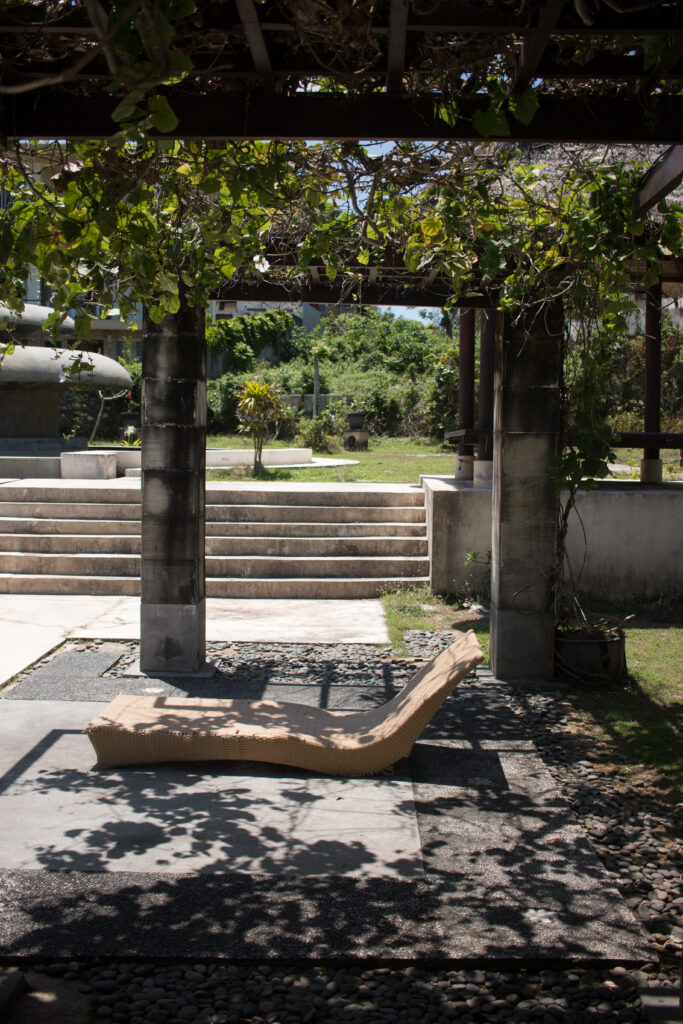
You’re about to embark on a journey of knowledge. In this article, we will demystify the world of construction project management. From the basics of what it is to the intricate details that make it successful, we will provide you with a comprehensive understanding of this field. So, grab your hard hat and get ready to explore the fascinating world of construction project management. Let’s begin!
Understanding Construction Project Management
1. Definition of Construction Project Management
Construction project management refers to the practice of planning, coordinating, and overseeing complex construction projects from start to finish. It involves various elements such as managing resources, time, quality, and cost to ensure the successful completion of a construction project.
Project managers in this field play a crucial role in the planning, execution, and delivery of construction projects, ensuring that all aspects of the project are implemented effectively and efficiently. They are responsible for ensuring that the project is completed within budget, on time, and to the satisfaction of all stakeholders involved.
2. Importance of Construction Project Management
Construction project management is of utmost importance for several reasons. Firstly, it helps in maximizing the efficiency and effectiveness of the construction process. By carefully planning and coordinating all activities, construction project managers ensure that resources such as labor, materials, and equipment are utilized optimally, reducing wastage and improving productivity.
Secondly, construction project management helps in minimizing risks and uncertainties associated with construction projects. Through meticulous planning, project managers identify potential risks and develop appropriate mitigation strategies to minimize their impact. This helps in preventing delays, additional costs, and other complications that may arise during construction.
Furthermore, construction project management plays a vital role in ensuring quality control. Project managers are responsible for setting and maintaining high-quality standards throughout the construction process, ensuring that all work meets industry standards and client expectations. This helps in delivering a final product that meets the required specifications and satisfies the needs of the clients.

3. Key Roles and Responsibilities in Construction Project Management
In construction project management, there are several key roles and responsibilities that need to be fulfilled for successful project execution.
-
Project Manager: The project manager is responsible for overall project planning, coordination, and control. They are the main point of contact for all project-related matters and ensure that the project is delivered according to the client’s requirements.
-
Construction Manager: The construction manager is responsible for overseeing the actual construction process. They coordinate with subcontractors, supervise the work on-site, and ensure that construction activities are carried out safely, efficiently, and in compliance with relevant regulations.
-
Cost Estimator: The cost estimator is responsible for accurately estimating the cost of the construction project, including labor, materials, and other expenses. Their estimates help in developing a realistic budget and tracking project costs throughout its duration.
-
Scheduler: The scheduler is responsible for creating and maintaining the project schedule. They coordinate with various stakeholders to determine the sequence of activities, allocate resources, and ensure that the project progresses as per the planned timeline.
-
Quality Control Manager: The quality control manager ensures that all work meets the required quality standards through regular inspections, testing, and monitoring. They work closely with all stakeholders to identify and rectify any quality issues that arise during the construction process.
4. Phases of Construction Project Management
Construction project management typically consists of several distinct phases. These phases provide a structured framework for the successful delivery of construction projects. The specific names and number of phases may vary depending on the project complexity and the project management methodology followed. However, the following four phases are commonly recognized:
-
Initiation: This phase involves the identification and development of the project idea. It includes activities such as defining project objectives, conducting feasibility studies, and securing funding.
-
Planning: The planning phase focuses on developing a comprehensive project plan. It includes activities such as defining project scope, creating a work breakdown structure, identifying project risks, and establishing project timelines and budgets.
-
Execution: The execution phase involves the actual implementation of the project plan. It includes activities such as procurement of resources, coordination of construction activities, and monitoring project progress.
-
Closure: The closure phase marks the formal completion of the construction project. It includes activities such as conducting final inspections, handing over the completed project to the client, and documenting lessons learned for future reference.

5. Key Project Management Processes in Construction
In construction project management, there are several key processes that project managers must implement and oversee. These processes are crucial for effective project control and successful project delivery. The following are some of the key project management processes in construction:
-
Scope Management: This process involves defining and controlling the project scope. It includes activities such as identifying project deliverables, managing scope changes, and ensuring that the project’s objectives are met.
-
Cost Management: Cost management involves estimating, budgeting, and controlling project costs. It includes activities such as developing cost estimates, monitoring project expenses, and managing project finances.
-
Time Management: Time management focuses on managing the project schedule. It includes activities such as creating a project schedule, monitoring project progress, and ensuring that the project is completed within the planned timeframe.
-
Risk Management: Risk management involves identifying, assessing, and controlling project risks. It includes activities such as conducting risk assessments, developing risk mitigation strategies, and monitoring risks throughout the project lifecycle.
-
Quality Management: Quality management focuses on ensuring that the project meets the required quality standards. It includes activities such as defining quality criteria, conducting quality inspections, and implementing quality control measures.
6. Construction Project Management Tools and Techniques
Construction project management utilizes various tools and techniques to streamline project processes and enhance project efficiency. These tools and techniques assist project managers in planning, monitoring, and controlling construction projects. Some commonly used tools and techniques in construction project management include:
-
Project Management Software: Project management software provides a centralized platform for managing all project-related information. It enables project managers to schedule tasks, allocate resources, track progress, and collaborate with project team members effectively.
-
Building Information Modeling (BIM): BIM is a digital representation of a construction project that integrates all project data, including design, construction, and operational information. It enables project stakeholders to visualize, analyze, and simulate the construction process before the physical construction begins.
-
Critical Path Method (CPM): CPM is a project scheduling technique that identifies the longest sequence of dependent activities, known as the critical path. It helps in determining the project’s overall duration and identifying activities that must be completed on time to avoid project delays.
-
Earned Value Management (EVM): EVM is a project performance measurement technique that integrates cost, schedule, and work performance information. It helps project managers assess project performance, forecast future performance, and identify cost and schedule variances.
-
Lean Construction: Lean construction techniques focus on minimizing waste and maximizing value in construction projects. It involves principles such as eliminating non-value-added activities, continuous improvement, and collaborative planning.

7. Common Challenges in Construction Project Management
Construction project management is a complex discipline that comes with its fair share of challenges. Some common challenges that project managers may face include:
-
Unclear project objectives and scope: Poorly defined project objectives and scope can lead to confusion, scope creep, and project delays. It is crucial for project managers to work closely with stakeholders to clearly define project requirements and scope.
-
Limited resources: Construction projects often have resource constraints, including labor, materials, and equipment. Managing these limited resources effectively requires careful planning, coordination, and resource allocation.
-
Weather and environmental conditions: Construction projects are susceptible to weather and environmental factors that can impact project progress and productivity. Project managers need to anticipate and plan for these conditions to minimize their impact on the project.
-
Communication and collaboration issues: Effective communication and collaboration are critical for successful construction project management. Any breakdown in communication or lack of collaboration can lead to misunderstandings, delays, and conflicts.
-
Safety and regulatory compliance: Construction projects involve inherent risks, and ensuring the safety of workers and compliance with regulations is paramount. Project managers need to develop and implement robust safety plans and stay updated with relevant regulations and industry best practices.
8. Best Practices in Construction Project Management
To ensure successful construction project management, it is essential to follow best practices that have been proven to enhance project outcomes. Some key best practices in construction project management include:
-
Clear project objectives and scope: Clearly defining project objectives and scope from the outset helps in avoiding misunderstandings, scope creep, and unnecessary rework. This ensures that everyone involved in the project is aligned and working towards a common goal.
-
Effective communication and collaboration: Establishing effective communication channels and promoting collaboration among team members and stakeholders is crucial for project success. Regular project meetings, progress reports, and open lines of communication facilitate timely decision-making and issue resolution.
-
Robust risk management: Identifying and managing project risks throughout the construction process is vital to prevent potential setbacks. Proactive risk management includes conducting thorough risk assessments, developing contingency plans, and monitoring risks regularly.
-
Realistic project planning and scheduling: Developing a realistic project plan and schedule based on accurate estimates and proper sequencing of activities is critical. It allows project managers to set achievable targets, monitor progress effectively, and make necessary adjustments to keep the project on track.
-
Quality control measures: Implementing robust quality control measures throughout the construction process ensures that the final product meets the required standards. Regular inspections, testing, and adherence to quality management systems help identify and rectify any quality issues promptly.
9. Emerging Trends in Construction Project Management
Construction project management is constantly evolving to adapt to new industry trends and technologies. Some emerging trends in construction project management include:
-
Sustainability: With a growing focus on environmentally-friendly and energy-efficient construction, sustainability practices are becoming increasingly important in construction project management. This includes using sustainable materials, implementing renewable energy solutions, and adopting green building practices.
-
Virtual and Augmented Reality: Virtual and augmented reality technologies are being used in construction project management to enhance project visualization and improve collaboration among stakeholders. These technologies allow project teams to virtually walk through the project, make design changes in real-time, and identify potential clashes or conflicts before construction begins.
-
Building Information Modeling (BIM): BIM is gaining widespread adoption in construction project management. It enables project teams to create and manage a comprehensive digital representation of the project, facilitating better planning, coordination, and design collaboration.
-
Prefabrication and Modular Construction: Prefabrication and modular construction methods are gaining popularity due to their ability to reduce construction time, improve quality control, and minimize waste. Construction project managers need to adapt to these methods to take advantage of their benefits.
10. Conclusion
Construction project management plays a crucial role in ensuring the successful delivery of construction projects. By effectively planning, coordinating, and overseeing all aspects of the construction process, project managers ensure that projects are completed on time, within budget, and to the satisfaction of all stakeholders involved. Through their roles and responsibilities, project managers help in maximizing efficiency, minimizing risks, and maintaining high-quality standards in construction projects. By adopting best practices, utilizing appropriate tools and techniques, and staying updated with emerging trends, construction project managers can navigate the common challenges and contribute to the overall success of construction projects.







